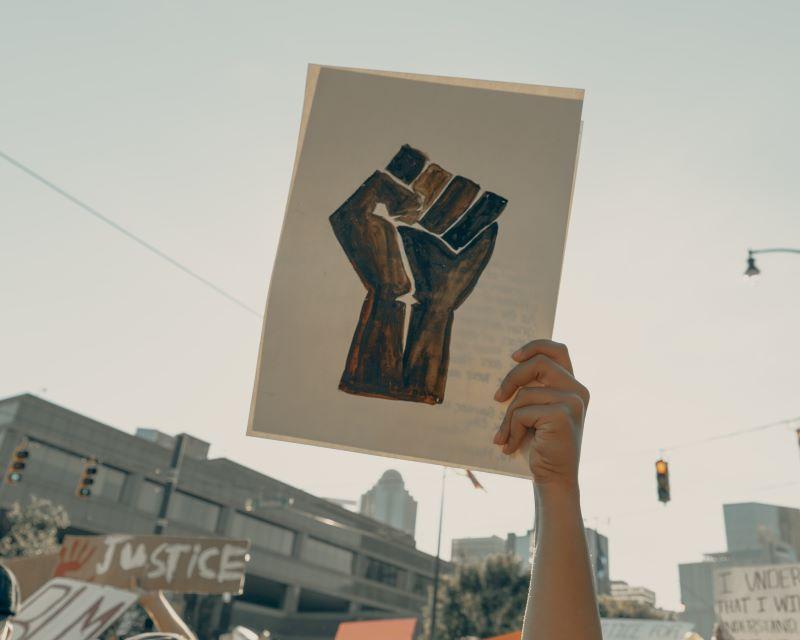Post-secondary institutions in Canada, and in many places around the world, have been challenged to commit to decolonisation and anti-racism in the academy – efforts fraught with difficulty and resistance that too often fall to individual instructors implementing changes in their classrooms and research without adequate institutional support. Rightly or wrongly, as educators we often need to take responsibility for the work, regardless of institutional support, starting by decolonising ourselves, which necessitates asking a series of deeply reflective questions.
Self-reflection: a central aspect of decolonising ourselves
How do we, as instructors committed to decolonisation and anti-racism, accept our realities? The institutions we work in are products of colonialism that privilege Western knowledge systems, yet we acknowledge our responsibility to take up processes of decolonisation and antiracism in our classrooms and research. To move beyond rhetoric, hollow commitments and well-intentioned one-time efforts, we must hold ourselves accountable through ongoing self-reflection – which is defined by the Oxford English Dictionary as “meditation or serious thought about one’s character, actions and motives” – and consider our teaching and research choices, how these choices sustain the status quo and how they further our anti-racist and decolonial goals.
- Steps to decolonise higher education: after yourself, change the curriculum
- The history versus fiction debate revisited (again) thanks to ‘The Crown’
- A global effort to decolonise a reading list
Self-reflection helps us grapple with meshing institutional objectives with authenticity in the work, overcome barriers and frustrations inherent in colonial settings and manage feeling required to uphold colonial structures and knowledge systems in some of the work we do.
At the heart of this is bringing what we value into our lives, classrooms and research, and reflecting on the how and why of what we do. For instance, when approached to write this piece by our university, we engaged in substantial reflection ahead of agreeing to collaborate on it because our work aligns with its institutional goals. We discussed: why are we showing up for this work? Who benefits from it? Does the writing advance our decolonial and anti-racist goals? In what way? Or does writing this piece simply advance our personal career goals?
Our experience highlights some key questions to ask when engaging in decolonial and anti-racist efforts in teaching and research. Entry to this work begins by focusing on decolonising oneself, reflecting deeply on one’s positionality and privileges. Building on these ideas in the context of decolonial/anti-racist self-reflection in particular, the questions that a person may engage with are diverse, and specific to any individual, such as:
- Why am I doing this work? Because it is the “right” thing right now or because of authentic commitment?
- What unlearning and relearning have I done?
- How does my positionality bring biases or gaps in the information I present in my classrooms/research?
- Whose voices and perspectives am I presenting in my classes/research? Am I prioritising certain sources (the classics, for example) despite the often racist, sexist or otherwise discriminatory implications of prioritising some voices over others or certain types of knowledge over other types of knowledge?
- How am I using language in my teaching/research? (for example, saying “targeting groups for criminalisation” rather than “certain groups are vulnerable to overcriminalisation”).
- Am I experiencing resistance to change, new ideas and critique?
- Am I falling back on norms of my discipline?
- Why do I impose penalties for late submissions?
- What did I have to work with this semester within the colonial system? How did I do?
- How am I navigating the uncomfortable realities that I have engaged in harm or am furthering harm in my teaching/research?
Reflecting on these questions is complex, messy and uncomfortable (owning one’s mistakes, understanding one’s privilege), yet doing so is essential in decolonising ourselves.
A role for institutions in supporting self-reflection
To support this self-reflection, institutions need to recognise that decolonial and anti-racist work is time-intensive (for example, incorporating diverse authorship in course reading lists to reflect one’s unlearning and relearning), emotionally difficult and even risky on a professional level. Those who actively engage in this work are often “othered”, labelled “one of those decolonial people.”
While we may wear this label with pride, we have all been critiqued by colleagues and students and even marginalised for being unapologetically anti-racist or committed to challenging colonialism. Thus, institutions must minimise these risks and normalise these efforts within academia. If the work is truly valued, institutions must offer instructors working towards decolonial and anti-racist efforts time (such as course releases), grants and professional development opportunities.
Senior administrators must also engage in deep reflection and decolonise themselves to understand and accept the needs and responsibilities involved in this work. The result will show their meaningful, non-performative commitment and shift institutional priorities to providing the support required for structural change while acknowledging the labour this work requires.
In the meantime, constant self-reflection nourishes the impact of decolonial and anti-racist work. Decolonising oneself staves off some unintended harms, as we centre ourselves in the process and acknowledge the privilege(s) that we bring to the work. For example, as a Black academic in the decolonisation space, constant reflection (self-decolonising) prevents the harms perpetuated by homogenising “non-white” experiences/challenges/oppression. Accordingly, one must constantly reflect on and acknowledge one’s positionality.
Of course, self-reflection alone is insufficient and becomes an intellectual form of navel-gazing in the absence of commitment to action and follow-through.
Danielle Murdoch is a senior lecturer, Sheri Fabian is a university lecturer, Helene Love is a lecturer, Tamara O’Doherty is a lecturer and Marsha-Ann Scott is a PhD candidate, all in criminology at Simon Fraser University, Canada.
If you found this interesting and want advice and insight from academics and university staff delivered direct to your inbox each week, sign up for the THE Campus newsletter.




comment3
(No subject)
(No subject)
(No subject)